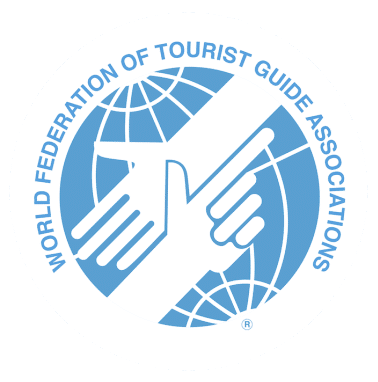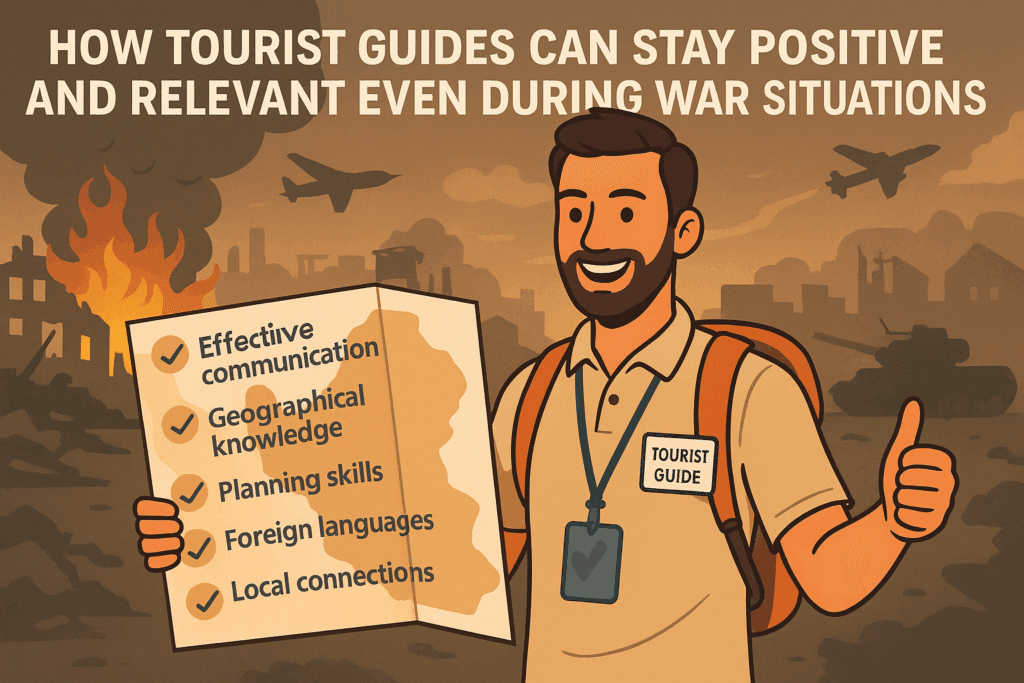By Amir Hossein Masoudi, National Trainer, World Federation of Tourist Guide Associations (WFTGA)
In light of the ongoing war in Iran, I felt compelled to reflect on the role of tourist guides during times of conflict—viewing our profession through a different lens. This essay, originally published on Iranian tourism and social media platforms, is now shared in English with the international guiding community.
Tourism is often among the first casualties of war.
Travel ceases, agencies close their doors, borders tighten, and the search for culture gives way to the pursuit of safety. Amid such disruption, tourist guides—once cultural ambassadors, facilitators of peace, and bearers of knowledge—appear sidelined. But is this truly the case? Are those with years of experience in communication, planning, and fieldwork simply bystanders when crisis strikes?
The answer is a resounding no.
Tourist guides possess a rich and diverse skill set that can be of immense value in times of conflict. What follows is a reflection on their potential to contribute meaningfully—even when tourism is at a standstill.
1. Masters of Communication
Guides are trained to communicate effectively with people from a wide range of cultures, languages, and backgrounds. They bring calm to tense moments, simplify complex topics, and foster understanding—skills that are vital in responding to humanitarian crises, supporting refugees, or working with the media.
2. Geographic and Local Knowledge
Familiarity with local terrain, climate, and infrastructure allows guides to assist in evacuation planning, guide relief efforts, and navigate emergency logistics. Their grounded knowledge of their regions becomes critical when formal systems are strained or inaccessible.
3. Adaptive Problem-Solvers
Guides are planners by nature, accustomed to handling uncertainty—be it through itinerary changes, weather disruptions, or health emergencies. Their ability to remain calm under pressure and adapt creatively becomes a rare and valuable asset in conflict zones.
4. Linguistic and Cultural Fluency
With proficiency in multiple languages and deep knowledge of national heritage, guides can serve as interpreters, cultural mediators, and storytellers. They help document lived experiences, preserve identity, and shape narratives grounded in dignity and resilience.
5. Community Integration
Tourist guides are often closely connected to local communities, including rural areas and indigenous networks. Their existing relationships and grassroots access can support relief coordination, resource sharing, and volunteer mobilisation where official capacities fall short.
Whether through volunteering, collaborating with NGOs, mentoring new recruits, or even curating documentary experiences for journalists, guides can illuminate the human stories behind the headlines. They become the unofficial, yet profoundly authentic, voices of conflict.
Even when tourism is paused, the guide’s vocation remains alive. We are, and always will be, storytellers of peace—even in times of war.
Wishing for global peace and unrestricted travel for all,
 Amir Hossein Masoudi
Amir Hossein Masoudi
Tourism Researcher & Practitioner
Instagram: @amirantrip
National Trainer, World Federation of Tourist Guide Associations (WFTGA)

